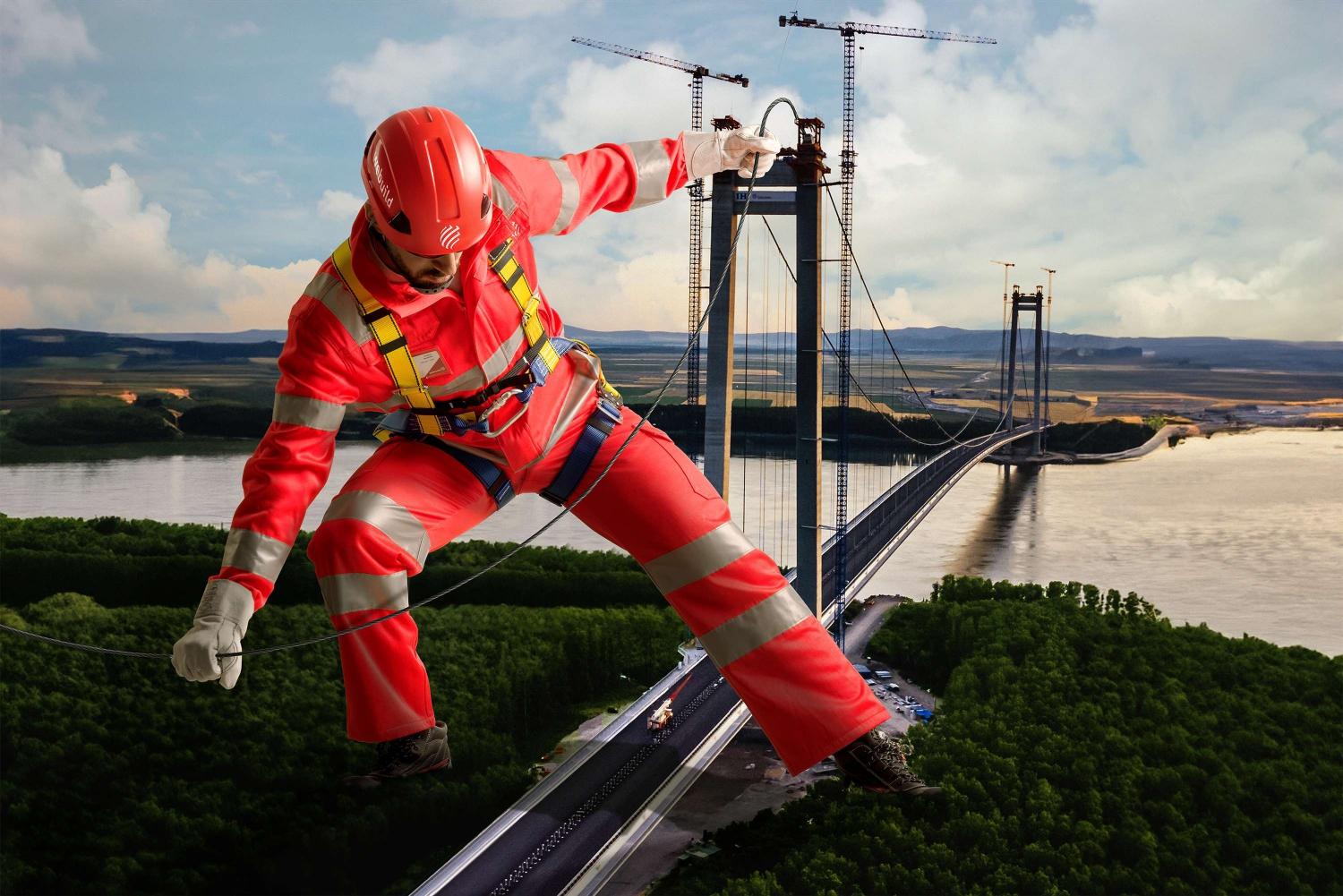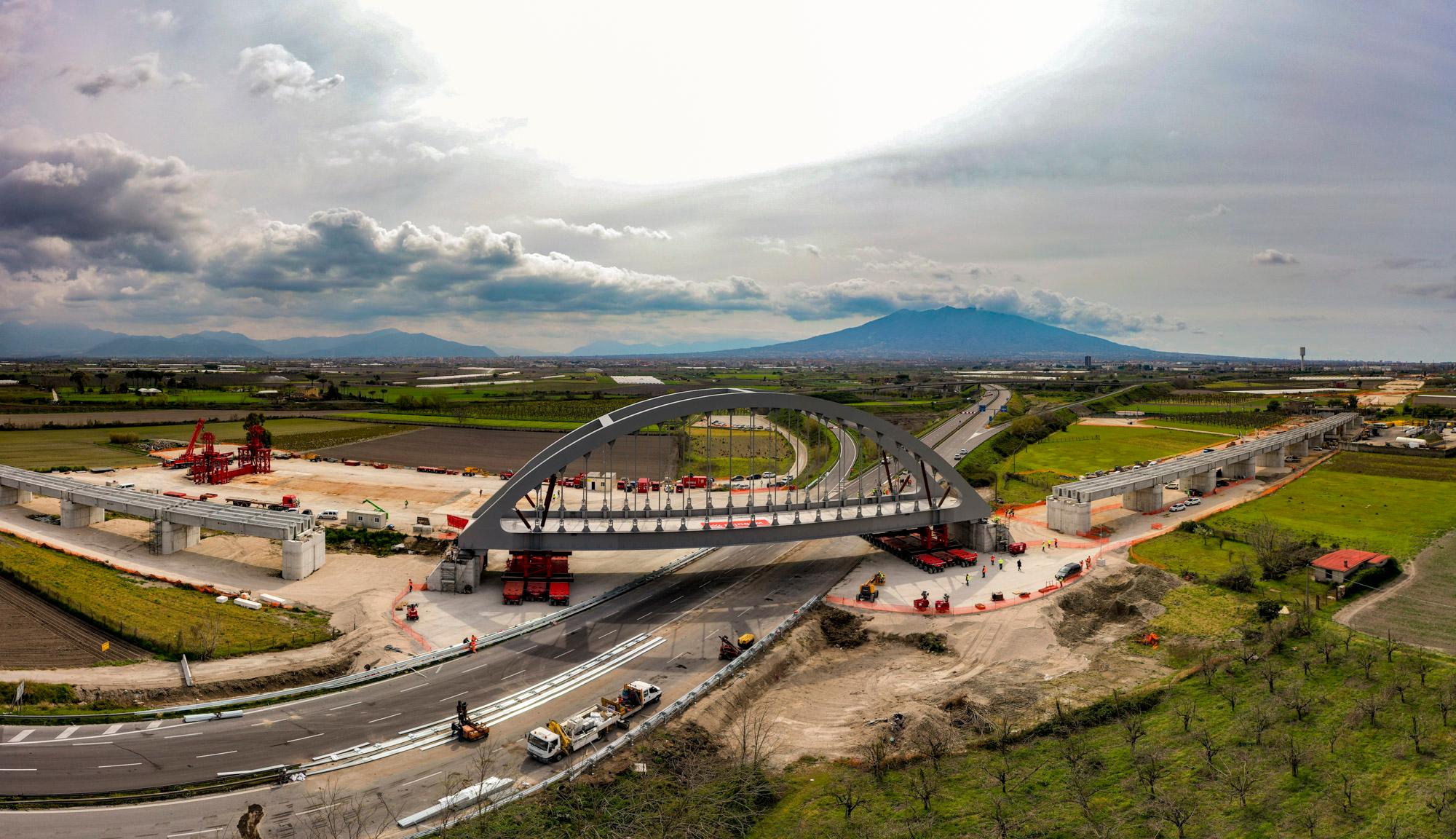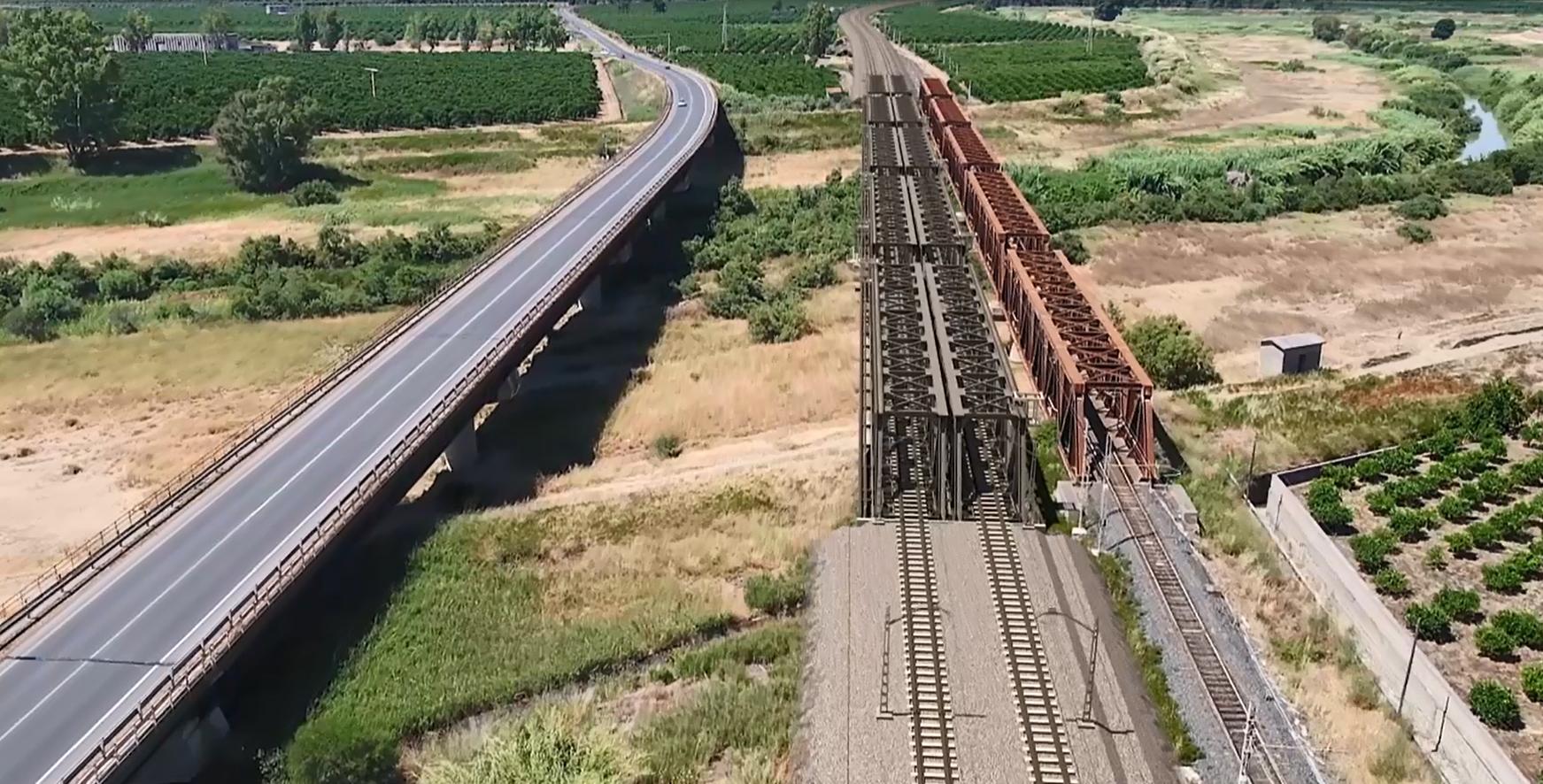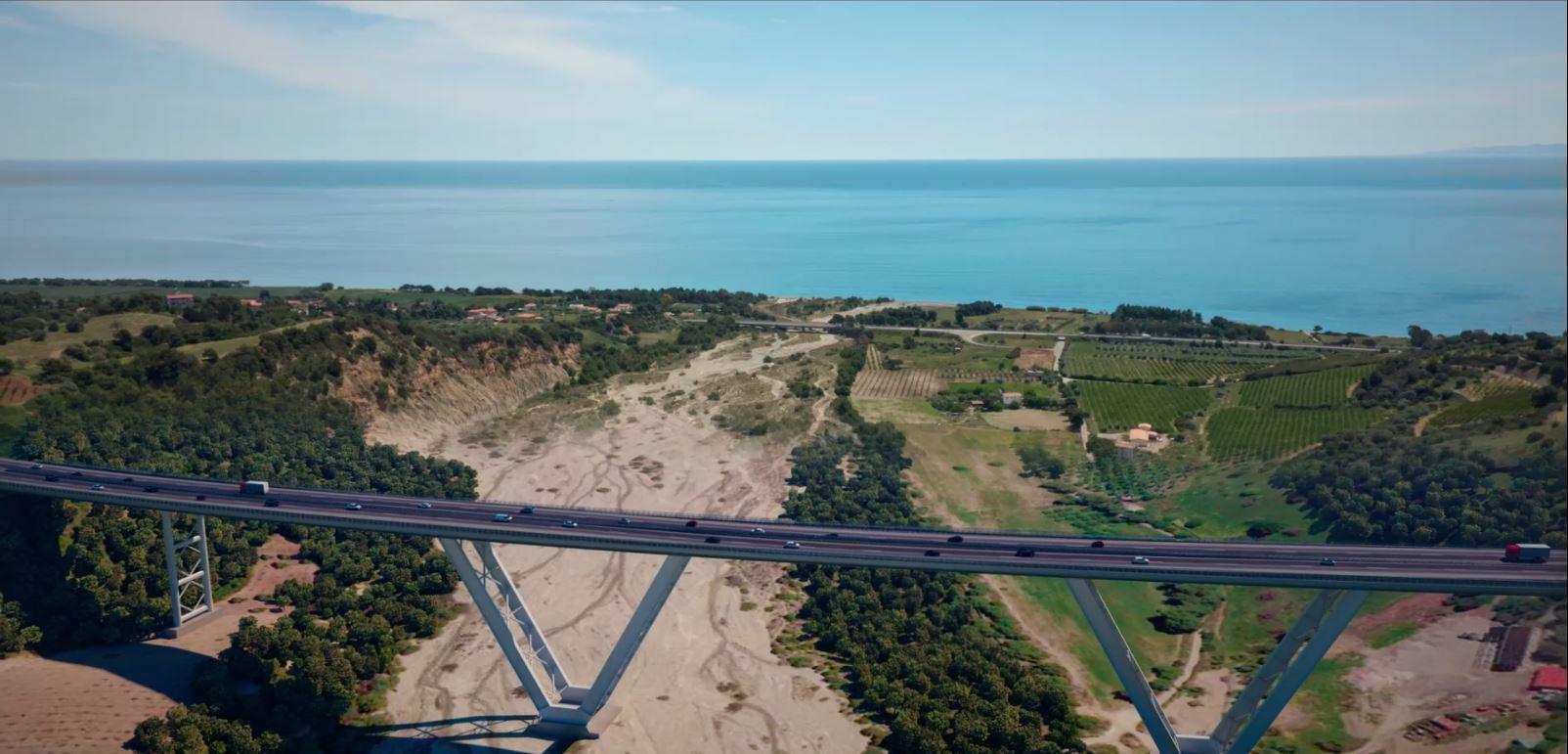Building the future
Infrastructure for the South of Italy
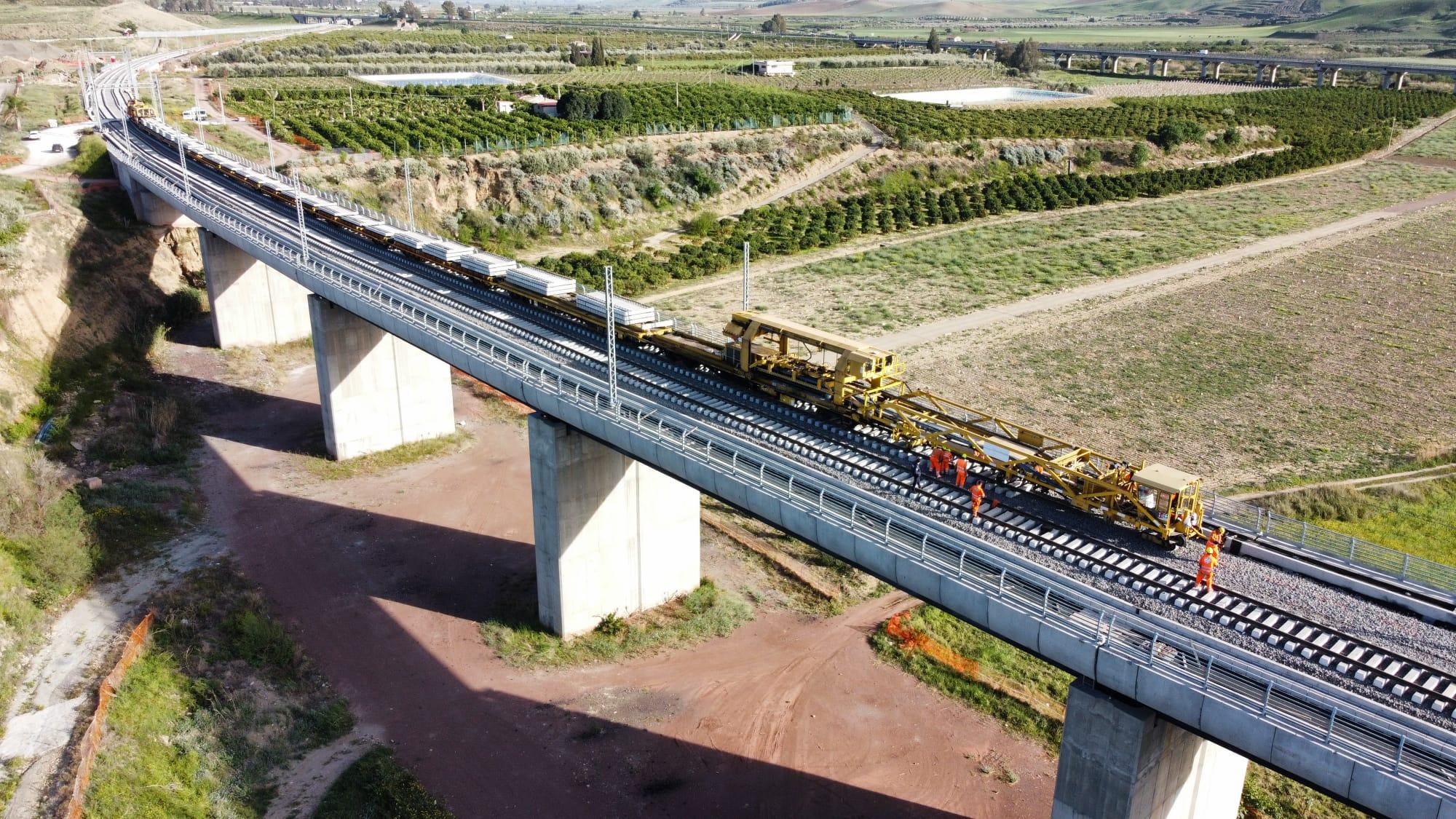
Italy's revival begins in the South: Webuild and infrastructure as the driving force for growth
In about 120 years of history, has built 82,533 kilometres of , and 14,140 km of globally, bringing together nations, cities, people, while also contributing to the economic and social development of those countries. These large infrastructures have transformed these countries into a more modern version of themselves, while also providing a better future for the generations to come.
Today, Italy also needs this modernization: from high-speed railways to road networks, to metro lines, Italy needs to modernize itself, and can only do this with a maxi plan to relaunch the country, which must begin from infrastructure to create growth and more jobs.
The South of Italy runs on its infrastructure. Today's, but especially tomorrow's. Many construction sites are already working to contribute to providing the South of Italy with modern, sustainable works. From the high-speed trains that, after the Naples-Bari section, is set to arrive in Calabria, to the high capacity line on the Palermo-Catania-Messina route, the South is bidding to become a strategic hub of the Mediterranean thanks to its developing infrastructure.
These ambitious infrastructure projects are at the heart of this transformation. Southern Italian regions will be transformed through important works like the high-speed rail, new roads, metros, bridges, and urban re-qualification projects. This is a momentous change of pace that will increase the country's interconnection and help complete that ambitious linking of TEN-T lines, which aims to unite Palermo and Helsinki in a single journey. This is how the “Europe made of people and goods” will be shaped, a community where human and commercial exchanges are consummated through modern and innovative infrastructure inspired by the shared principle of sustainability.
Webuild's Commitment to Southern Italy
From Campania to Sicily, work at the heart of everything
Calabria, Campania, Apulia, Sicily. Numerous regions are interested in the TEN-T network where the Group is committed to building public works that are at the very core of the great plan to relaunch Italy.
Starting in Sicily, Webuild is currently involved in the construction of seven rail routes on the Palermo-Catania-Messina route and one section of the Ragusa-Catania Highway Corridor. On the Palermo-Catania route, it is building: Lot 1+2 , Lot 3 , Lot 4a , Lot 4b and Lot 6 . On the Messina-Catania line, however, it is building Lot 1 and Lot 2 .
Overall, the eight contracts involve the design and construction of about 171km of new railway line and 18 km of highway, with a total awarded value of about €6.9 billion. This is a major employment and growth opportunity for the area and the entire supply chain: in fact, it is estimated that up to about 7,000 direct and third-party new jobs will be created, with the involvement of about 1,700 suppliers from when works begin.
These are interventions that aim to ensure the interconnection and interoperability of the railway line (by bringing it up to European standards), by improving the connection between the island's inland areas and the three coastal cities and increasing transport capacity and speed. The entire infrastructure will make the railway sector more competitive compared to tyre transport, reducing travel times to 2 hours between Catania and Palermo (60 minutes less compared to current travel times) and to 45 minutes between Messina and Catania (30 minutes less).
The Palermo-Catania-Messina route is an integral part of the Mediterranean-Scandinavian Corridor of the TEN-T trans-European network. Building these six sections will avoid the emission of approximately 45,500 tons of CO2 per year.
Adding to the rail projects is the project to double and modernize the Ragusa-Catania Highway Corridor, also known as . The work awarded to Webuild involves Lot 1, with a total development of about 18km, with a viaduct of more than 500 meters, 6 overpasses, two interchanges and 3 underpasses.
Works to build the where Webuild is building 4 sections: Naples-Cancello, Apice-Hirpinia, Orsara-Hirpinia and Orsara-Bovino are being carried out in Campania. The HS/HC Naples-Bari line wishes to become a strategic asset for developing sustainable mobility in the South of Italy, with travel times reduced from 20% to 45%. Building the new line is also a driver for the economic development and employment levels of the area: the section where the Group is working currently have over 2,000 men and women working on the project (indirectly and indirectly hired) and a long supply chain with approximately 400 companies.
Webuild's construction sites in Sicily

The new section of the Palermo–Catania railway is an opportunity to create jobs in Sicily
The Webuild Group has built over 300 public works in the South of Italy since the 1930's. Of these, 190 were completed from 1990 to this day. The first works built were dams and hydroelectric plants in the Palermo area. Other fundamental works followed for the infrastructural development of all regions.
Today, the Group is working to design and build some of the largest complex infrastructures in the South, together with a supply chain that are contributing to the growth of the South of Italy.
Webuild is now heavily involved in southern Italy, including the islands, where it is carrying out 19 projects, with a total awarded value of about €13 billion, including, among others, four sections of the Naples-Bari high-speed and high-capacity railway line in Campania, Lot 1A of the section between Battipaglia and Romagnano of the new , 7 sections of the Palermo-Catania-Messina railway line and the Ragusa-Catania highway axis in Sicily, and Megalot 3 of the Ionian Trunk Road (SS106) in Calabria, and various projects to strengthen urban and extra-urban mobility in Naples. These projects now employ 8,100 people, including direct and third-party staff, and a supply chain of 5,400 companies has been involved since works began.
Among the alliances with the supply chain, , the fully robotized factory in Belpasso (Catania, Italy), for the production in Sicily of the prefabricated concrete segments that will line the tunnels of the high-capacity railway lines on the Messina-Catania route, plays a particularly important role.
Particular attention is dedicated to creating growth opportunities for the young in the sector in Southern Italy. Today, they represent approximately 20% of Webuild's workforce. They will evermore be involved in the Group's activities, both in managerial roles and as workers.

Investments for Italy's future take off again from the South of Italy. Large infrastructures that create employment and growth.
Webuild in Campania has 8 projects underway for a total investment of approximately €5 billion.
In the Neapolitan area works for other infrastructure are also being built. Among these, the , foreseen for Line 1 of Naples' metro, where the Capodichino Airport is located. Inspired by the "Pozzo di San Patrizio", the station is totally underground and has a the shape of a propeller. The and the interventions foresees b y the , including a section of Line 7 of the Regional Metro of Naples.
To complete the projects underway in Campania, more than 3,300 people are currently employed, while the production chain has involved over 3,000 companies since the beginning of the works.
The Group has been present in the Naples area since the 1980s and has built and is building a total of 14 stations of the Naples metro, including some of the most iconic Art stations, such as the award-winning Toledo, but also Università, Dante, Materdei and Museo stations. Webuild also built the Naples-Afragola HS station designed by star architect Zaha Hadid.
Moving to the area south of Salerno, Webuild is working on the construction of Lot 1A Battipaglia-Romagnano of the future Salerno - Reggio Calabria High Speed Railway. A strategic work for the connection along the north-south axis of the peninsula. About 2000 jobs and the involvement of 170 direct suppliers are expected in the construction sites of Lot 1A. The Webuild’s largest TBM in Europe is used in the project.
Infografics Lot 1A Battipaglia-Romagnano, High-Speed Railway Salerno-Reggio Calabria, Italy
Moving over to Puglia, the Webuild Group is committed to building the the . It is an innovative, sustainable that respects the territory, which once finished, will take to creating a premium health facility with strategic value for the territory. The structure will ensure strengthening and modernising the capacity of the hospital's offer in the entire region, benefiting a user basin of 260 thousand people.
To conclude, the Webuild Group in Calabria is committed to building the : a work that stands for new economic growth opportunities and employment in Southern Italy, which levers on relaunching infrastructure. This strategic artery, which runs from Sibari to Roseto Capo Spulico connecting the coasts of Calabria, Basilicata, and Apulia, will play a central role in interregional exchanges. It will be a more modern and safer infrastructure compared to the previous one, guaranteeing a low landscape impact also thanks to the redevelopment of the Archaeological Park of Sibari. The new Ionica 106 trunk road is already a symbol of the revitalization of the South: about 1,200 people are working on it, including direct and third-party personnel, with a production chain from the start of work that consists of more than 880 companies, guaranteeing a future for numerous families.
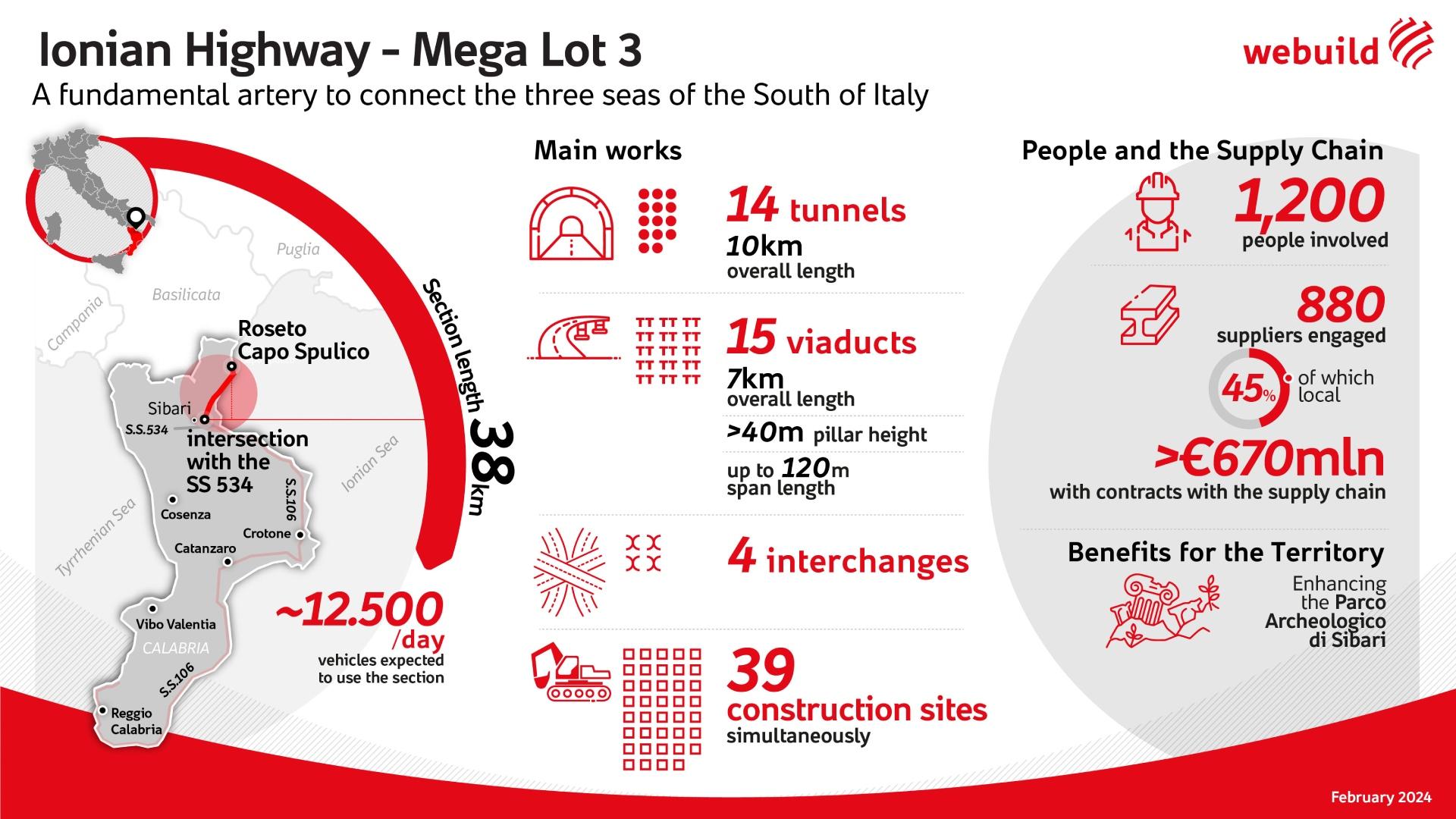
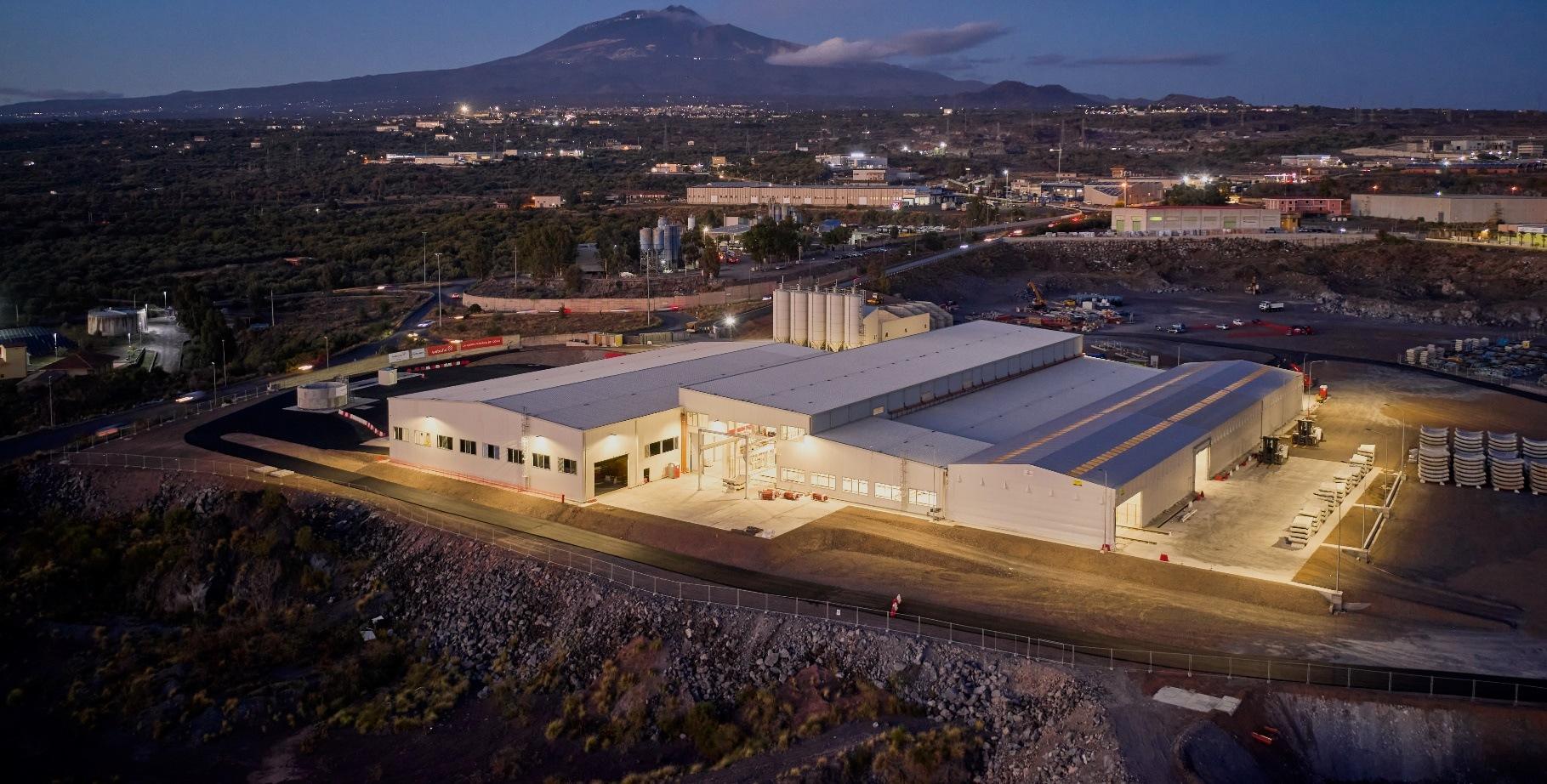
Roboplant: factories of the future
Pre-cast Concrete Segment Factories 4.0
The first of its kind in Italy, Roboplants are automated, safe, and environmentally friendly factories to produce pre-cast concrete segments, the structures with which freshly excavated tunnel walls are lined in tunnels of major infrastructure works such as railways or metros.
